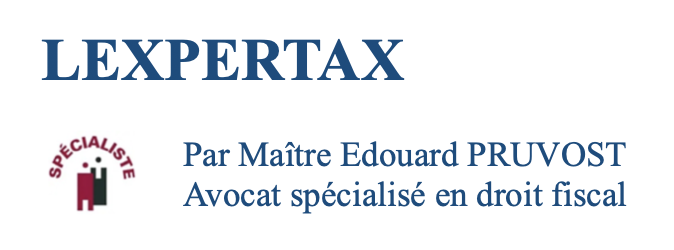Business tax audit
Why can the tax authorities conduct a tax audit?
What are the different stages of a tax audit and possible consequences?
Why seek the assistance of a tax lawyer?
Company tax audit
A tax audit is an experience that can be challenging for a business owner.
To better understand the scope of such a procedure and approach it more confidently, we have decided to explain to you through this article the key stages of a tax audit for a company and the importance of the assistance of a tax lawyer to guide you.
The tax audit conducted on a company is called an accounting verification.
This procedure concerns all individuals or entities subject to the obligation to keep accounts (sole proprietorships, liberal professions, commercial companies, individuals or entities subject to VAT, etc.).
Why can the tax authorities conduct a tax audit?
In France, taxes are subject to a declarative system. This means that individuals and businesses must file their annual income tax and corporate tax returns each year.
To verify the information in these declarations, the tax authorities have a right of recovery, the duration of which varies depending on the situation, to conduct an audit.
In the case of corporate income tax, under Article L169 of the tax procedure code, the tax authorities’ right of recovery can be exercised until the end of the third year following the year for which the tax is due.
For example, the tax authorities have until December 31, 2021, to make adjustments for an fiscal year ending in 2018.
What are the different stages of a tax audit and possible consequences?
- The accounting verification period
The accounting verification begins with the receipt of a notice of accounting verification by the company.
This document specifies the fiscal years subject to audit, and the date of the first interview with the verifying officer is set.
During the accounting verification period, several meetings with the inspector in charge of the case may be necessary. These meetings can take place at the company’s premises, at your advisor’s office (accountant or tax lawyer), or at the tax authority’s office.
The accounting verification period ends with the sending of a proposed adjustment.
Through this document, the verifying service proposes the adjustments it deems necessary following the accounting verification.
- The pre-litigation phase
Upon receiving the proposed adjustment, the pre-litigation phase begins.
The company has 30 days to submit its observations to the tax authorities (this period can be extended to 60 days in certain cases).
The tax authorities will then respond to the taxpayer’s observations. In this regard, they may fully or partially maintain their adjustments or decide to abandon them.
In case of full or partial maintenance of the adjustments, the company can exercise pre-litigation remedies (interview with the principal inspector, interview with the departmental interlocutor, referral to the departmental commission for direct taxes and taxes on turnover).
Please note that these remedies are not always available. Indeed, it depends on the procedure used: contradictory procedure or ex officio taxation procedure. Depending on the procedure, the taxpayer’s rights and guarantees are more or less extensive.
The pre-litigation phase ends with the recovery of additional tax assessments.
- The litigation procedure
The receipt of the recovery notice (form no. 3927-SD) marks the beginning of the litigation procedure.
Before being able to bring the tax judge (Administrative Court or Judicial Court), the company must send a contentious claim to the tax authorities to contest the recovery notice.
Only when this contentious claim is rejected can the company appeal to the competent judge. The rejection can be express or tacit (silence of the tax authorities for 6 months).
The dispute can then be brought before administrative or judicial courts depending on the tax involved.
Note that the filing of appeals to the Courts (administrative court or judicial court) and Courts of Appeal (administrative court of appeal or court of appeal) must be done in strict compliance with the deadlines imposed by law.
Why seek the assistance of a tax lawyer?
As you may have understood from reading the different stages of the procedure, it is particularly complex.
The tax lawyer, as a specialist in the field, will be able to accompany and advise you throughout this procedure.
Their perfect mastery of all the specificities of the procedure, as well as their expertise in various areas of taxation, will allow the tax lawyer to defend your interests to the best of their ability during this difficult period.
During the accounting verification phase, the tax lawyer can help you respond to the tax authorities’ requests and, if necessary, deal directly with them to avoid misunderstandings.
During the pre-litigation phase, the tax lawyer will work with you to develop the best strategy to reduce the amount of adjustments as much as possible. They will assist you during all meetings with the tax authorities and before the Departmental Commission for Direct Taxes and Taxes on Turnover. Their experience in this field makes the tax lawyer a privileged interlocutor with the tax authorities.
Finally, before the courts, the tax lawyer will defend your interests against the tax judge. It is necessary to note that before the Administrative Court of Appeal or the Court of Appeal, the assistance of a lawyer is mandatory.
The tax lawyers at LEXPERTAX are experts in tax litigation, especially in accounting verification matters.
We are committed to providing you with our expertise to assist, defend, and represent you during all phases of the procedure.
